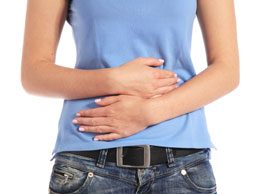How to keep your colon healthy
Have you thought about your colon lately? This organ isn’t just a garbage shoot’your colon is essential to your overall health. Here’s what you need to know about keeping your colon healthy

Source: Web exclusive, March 2011
You probably don’t give your colon much thought until something goes awry, such as diarrhea, constipation or other troubles. But if you get to know your colon before it causes you grief, you’ll be taking steps towards better general health and increase your chances of catching signs of colon cancer. Early intervention is key to identifying and successfully treating this type of cancer, which is the second deadliest in Canada.
Here’s what you need to know about keeping your colon healthy:
What the colon does
The colon (also known as the large intestine) is the final stop in food’s journey through the digestive tract. The colon absorbs fluid from indigestible food residue and produces solid waste for elimination. ‘The colon is essentially a waste-storage organ that lets you control when the waste is released,’ says gastroenterologist Dr. Clarence KW Wong, associate professor of medicine at the University of Alberta.
But this organ does much more than just act as your body’s garbage shoot. ‘The colon is also important for fluid, electrolytes (salts) and fatty-acid absorption. These can be important for systemic health. As well, the colon holds a large number of commensal bacteria [‘good bacteria’], which may hold many benefits for the body,’ he adds.
Signs of a healthy colon
If you’re not thinking much about your colon, chances are good that it’s healthy. Regular bowel movements and no pain, bloating, diarrhea or bleeding likely mean that all systems are go.
Signs of possible colon trouble
There are a number of symptoms that may indicate a colon-health issue, but they can also be associated with other problems. ‘Digestive symptoms may stem from a temporary illness such as flu, a reaction to certain medications or a more chronic underlying condition,’ Wong explains. So it’s important to recognize what’s out of the ordinary for you‘and to communicate any of the following to your doctor:
‘ Chest pain
‘ Heartburn
‘ Constipation
‘ Bloating and/or excessive gas
‘ Stomach pain and/or cramps
‘ Difficulty swallowing
‘ Nausea
‘ Rectal bleeding
‘ Diarrhea
‘ Mucus in stool
‘ Changes in bowel habits
Urgent signs of colon trouble
Although the symptoms above call for you to make an appointment with your doctor, the symptoms below indicate you need see a healthcare professional right away for prompt medical attention, Wong advises:
‘ Diarrhea that lasts more than five days”
‘ Unintended weight loss”
‘ Persistent vomiting”
‘ Black tarry stools”
‘ Bright red blood in your stool or bloody diarrhea”
‘ Unexplained fatigue”
‘ Pain in the stomach area that improves or worsens when you eat”
‘ Persistent fever”
‘ Pain when having a bowel movement”
‘ Abdominal pain that is persistent and severe or that wakes you from sleep ”
‘ Persistent heartburn that is not relieved with over-the-counter antacids
Who is at risk for colon cancer
Colon cancer kills nearly 9,000 of the approximately 22,000 Canadians diagnosed with it each year, making it the country’s second most fatal cancer. The good news is that colon cancer is more than 90 percent curable with endoscopic removal or surgery if caught early.
You’re at high risk and should be screened regularly if you are over age 50, you’ve previously had colon cancer and/or polyps, you have a history of inflammatory bowel disease (IBD) and/or you have a first-degree relative (sibling, parent or child) who has had colon cancer. In this last case, start screening between ages 40 and 50, or when you are 10 years younger than the age at which your relative was diagnosed.
If you’re at high-risk of developing colon cancer, talk to your doctor about cancer screening. Screening is essential because colon cancer can sometimes be symptomless in its early stages. ‘Screening refers to looking for early signs of disease such as a precancerous lesion like a polyp, before symptoms appear,’ says Wong.
How to keep your colon healthy
It’s amazing how the same healthy lifestyle habits most experts recommend for weight loss and general good health apply equally to the promotion of good colon health. Want to keep your digestive tract on track? Here are some of Wong’s top tips:
‘ Drink plenty of water and other caffeine-free fluids
‘ Drink caffeine and alcohol in moderation
‘ Don’t smoke
‘ Get regular exercise
‘ Eat a balanced diet that’s high in fibre . Women should aim to get 25 grams of fibre daily and men should get 32 grams.
Don’t miss out! Sign up for our free weekly newsletters and get nutritious recipes, healthy weight-loss tips, easy ways to stay in shape and all the health news you need, delivered straight to your inbox.




